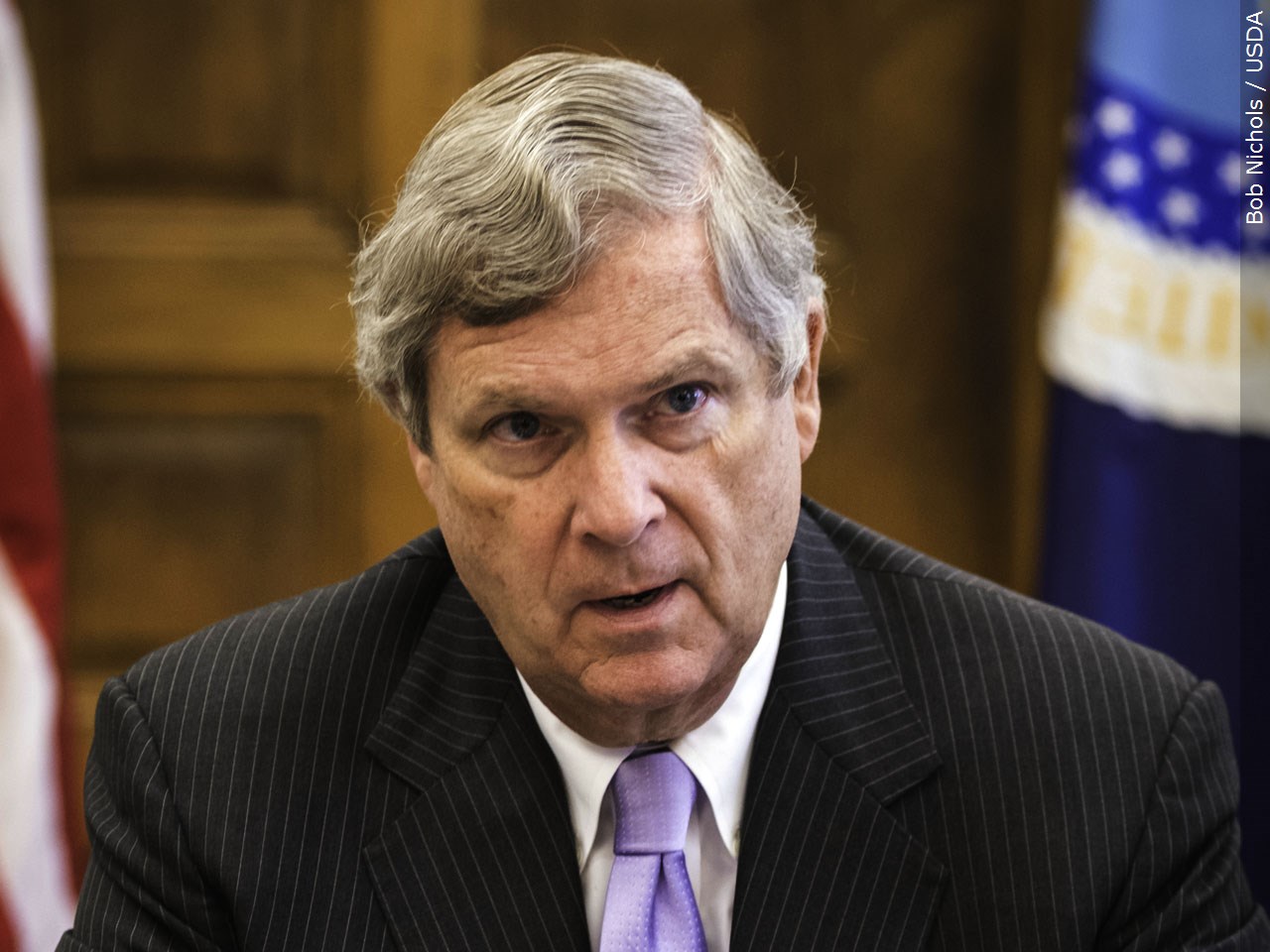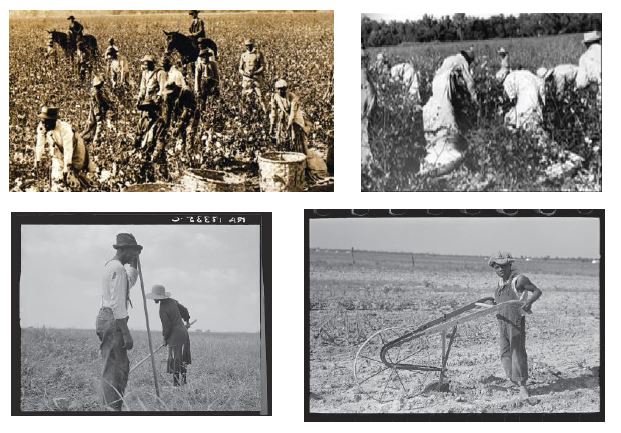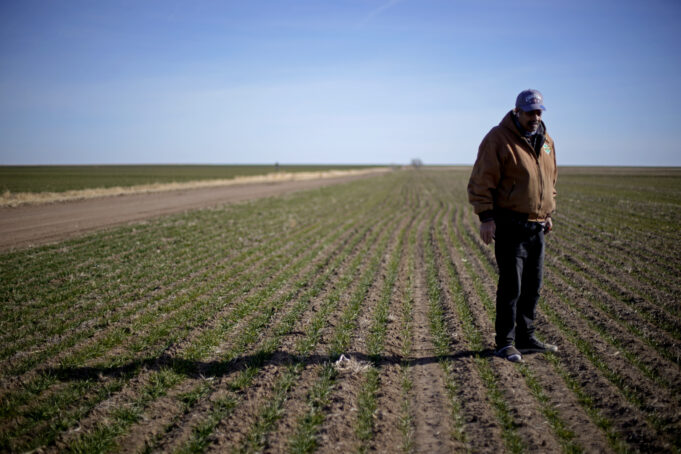Black farmers’ hopes of finally getting government relief are looking dim—again. This time $4 billion in loan forgiveness funds allocated as part of the Biden administration’s $1.9 trillion Covid-19 pandemic relief plan are on hold. A court’s temporary restraining order has suspended the program to help Blacks long disadvantaged and denied by Agriculture Dept. policies and racism.
“I see this as a continuation of Jim Crow and a form of slavery where, when it was time for Blacks to get stuff, they take it to the courts,” John W. Boyd, Jr., founder of the National Black Farmers Association, Inc. told The Final Call.
“The debt relief request is a 30-year-old request. It was not a new request that they’re painting in modern day media that excludes White farmers. We are saying they got all of the debt relief. We didn’t get any. We deserve it too and I think it’s time.”
Rick Esenberg, president and general counsel for the Wisconsin Institute for Law and Liberty, which filed the lawsuit, said in a statement, “The Court recognized that the federal government’s plan to condition and allocate benefits on the basis of race raises grave constitutional concerns and threatens our clients with irreparable harm. The Biden administration is radically undermining bedrock principles of equality under the law. We look forward to continuing this litigation but urge the administration to change course now.”

The lawsuit represents 12 farmers from Wisconsin, Minnesota, South Dakota, Missouri, Iowa, Arkansas, Oregon and Kentucky protesting the American Rescue Plan Act of 2021.
“Were plaintiffs eligible for the loan forgiveness benefit, they would have the opportunity to make additional investments in their property, expand their farms, purchase equipment and supplies and otherwise support their families and local communities,” the lawsuit said. “Because plaintiffs are ineligible to even apply for the program solely due to their race, they have been denied the equal protection of the law and therefore suffered harm.”
U.S. District Judge William Griesbach in Milwaukee issued the temporary restraining order June 10. He was appointed to the bench by President George W. Bush in 2002. The USDA immediately responded to the injunction with this statement: “USDA will continue to forcefully defend our ability to carry out this act of Congress and deliver debt relief to socially disadvantaged borrowers,” a department spokesperson said in an email. “When the temporary order is lifted, USDA will be prepared to provide the debt relief authorized by Congress.”

The audacity of the lawsuit has enraged Black organizations, and some government officials.
“Over the last 100 years, policies were implemented that specifically twisted in a way that disadvantaged socially disadvantaged producers,” U.S. Secretary of Agriculture Tom Vilsack told the media.
“There’s no better example of that than the Covid relief efforts. Billions of dollars went to White farmers because the system is structured in a way that gives them significant advantages.”
Dr. Ridgley Muhammad, head of the Nation of Islam’s Muhammad Farms, which consists of 1,556 acres in Southwest Georgia, said, “This is par for the course, we’re not supposed to get anything. How can it be reverse discrimination just to give back some of the money that was stolen because of discrimination? The White farmers got money that the Black farmers never got. They’ve been getting that money for years.
“Vilsack didn’t help Black farmers the first time he was at USDA. Now Biden returns him to the position and they talk about giving some redress to the Black farmer. I knew that was some game. Now it’s in the courts. We’ll see, but there’s no justice for the Black man and woman in America. No justice.”
Marc Morial, president of the National Urban League, said in a statement, “The effort to assist Black farmers comes after decades of systemic discrimination and exclusion. Throughout the 20th century, Black farmers were denied the loans and subsidies available to White farmers, and untold generational wealth has been lost as a result.”
Under the Trump administration nearly all of the $9.2 billion bailout provided to farmers in 2020 went to White farmers, according to the Environmental Working Group. White farmers received $6.7 billion (99 percent) in Coronavirus Food Assistance Program payments, while Black farmers received $15 million (.1 percent) and Latino farmers $100 million, according to calculations by the EWG based on Dept. of Agriculture data.
“When that happened, I didn’t hear anything about lawsuits concerning people of color not getting money,” Lloyd E. Wright, a retired USDA employee and former director of the Office of Civil Rights at USDA headquarters in Washington, D.C., told the media.
“For the last 100 years White farmers have received all of the benefits from the U.S. Department of Agriculture. Now that we’re getting ready to give crumbs to some extent to people of color, American Indians that they took the land from in the beginning and Blacks who cleared the land for them as slaves generations ago, now they have ants in the pants.”
The American Rescue Plan Act of 2021 was opposed by all 49 Republican senators, from the very beginning and has more opponents.

“This is a landmark civil rights case,” Stephen Miller of America First Legal and former President Trump’s White House senior policy adviser. “The stakes in this case could not be higher: The government must not be allowed to use its awesome authorities to punish, harm, exclude, prefer, reward or damage its citizens based upon their race or ethnicity.”
“A preliminary injunction will not compel the defendants to withhold loan forgiveness from minority farmers and ranchers; it will merely require them to award loan forgiveness to farmers and ranchers without any regard to race,” America First’s lawyers wrote in a brief.
Mr. Miller added, “The defendants will have a choice in whether to respond to the proposed injunction by extending loan forgiveness to all farmers and ranchers, or whether to respond by withholding loan forgiveness from everyone.”
White farmers are not the only ones opposed to Black farmers receiving debt relief. Banks are opposed to early loan pay offs. This cuts into their profit margins.
Three of the biggest banking groups that serve farmers—the American Bankers Association, the Independent Community Bankers of America, and National Rural Lenders Association—are dissatisfied about the prospects of being repaid early. Bank lobbyists asked the Agriculture Dept. to make changes to the repayment program, a USDA official said. Instead of wiping out the Black farmers debt all at once, the bank lobbyists are proposing that the USDA simply make the loan payments.

Their prodding is seen by some as being on the verge of threatening consequences and repercussions including long-term damage to the USDA’s minority lending program if the debt is relieved.
The banks wrote to Agricultural Secretary Vilsack in April. Their letter suggested that they might be more reluctant to extend credit if the loans were quickly repaid, leaving minority farmers worse off in the long run.
“If U.S.D.A. does not compensate lenders for such disruptions or avoid sudden loan payoffs, the likely result will be less access to credit for those seeking U.S.D.A. guaranteed loans in the future, including U.S.D.A. farmers/ranchers,” they wrote to Secretary Vilsak.
Between the White farmers filing discrimination lawsuits and the banks screaming don’t decrease our profits, Black farmers are under siege. But many pledge to fight every step of the way.
The case filed in Wisconsin is one of at least five federal lawsuits filed against Agriculture Secretary Vilsack to block assistance provided by the American Rescue Plan Act of 2021.

The National Black Farmers Association and Association of American Indian Farmers Association filed joint briefs opposing injunctions against Emergency Relief for Farmers of Color provided by USDA.
At least four additional cases have been filed by White farmers in Florida, Tennessee, Texas and Wyoming also seeking to block the USDA from disbursing aid to Black and farmers of color.
“I will fight all the way to the US Supreme Court!” vowed Mr. Boyd. “Justice too long sought by Black and other minority farmers in this country is once again facing unjustified delay.
“We’ve lost millions of acres of land after discrimination by United States Department of Agriculture. We lost about a million Black farmers in this country since the turn of the century. I’m here to tell you that I’m not giving up. I’m going to fight this measure all the way to the Supreme Court.”
Nicole Lee Ndumele, vice president for Racial Equity and Justice at the Center for American Progress, added, “By including specific aid designated for farmers of color in the American Rescue Plan, the Biden administration was not only addressing historic and modern-day inequities but also directing agricultural stimulus money to some of the farmers who need it most.
“Farmers of color are disproportionately small producers, so this debt relief was going directly to smaller family farms. This program provides a crucial lifeline to some of the most vulnerable farms in the country while taking an important step toward closing inequities in USDA programs. The program should be quickly reinstated.”
Sanko Farms is a multifaceted agricultural entity that seeks to change the food intake habits of people living in and affected by food deserts. CEO Kamal Bell told The Final Call, “The problem is we don’t have anything for ourselves. As long as we keep putting ourselves in this type of position and we don’t unite as a people, we’re always going to be at the mercy of whatever other people want us to have.
“Food is fundamental. It is the cornerstone of civilization, until we completely understand that as a people we are always going to be in this position,” he said. “We need more farmers. Why don’t we pool our funds to create more farmers?”













